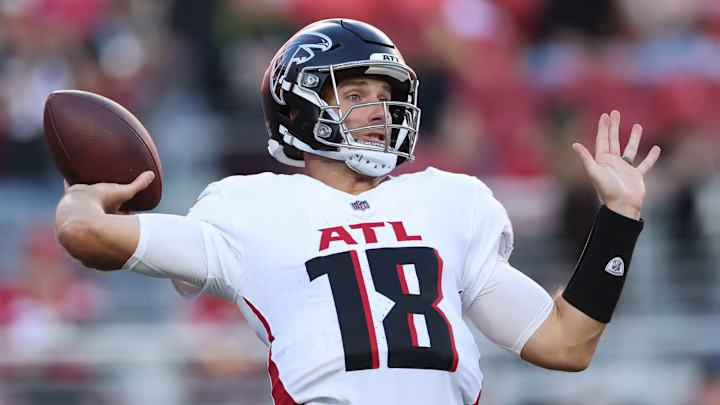The Falcons know it, the fans know it, and the rest of the league knows it: Kirk Cousins needs to be traded.
When ESPN posted its top 25 trade candidates ahead of the NFL deadline, Kirk Cousins landed at No. 21, a respectable spot but one that came with a skeptical outlook. ESPN analysts Jeremy Fowler and Matt Bowen gave him just a 20% chance of being traded, noting that the 37-year-old would likely need an injury elsewhere to generate any sort of trade market
On the surface, that 20% percent feels low for a quarterback both the Falcons and Cousins himself seem ready to part ways with. But dig deeper, and it actually makes sense. However, now that Cousins is in line to start in Week 8, the trade market could finally resurface.
The clock keeps ticking for the Falcons on a Kirk Cousins trade
There simply isn’t much of a market right now.
The Cincinnati Bengals already solved their backup crisis by trading for Joe Flacco, and the one team that once looked like the perfect fit, the New York Jets, has collapsed to 0-7, which doesn’t really give them a reason to trade draft capital for a bridge QB.
That shift has frozen the market for Cousins. Teams with playoff aspirations already have their quarterbacks, and teams without them aren’t looking to rent a 37-year-old on a deal with $10 million guaranteed in 2026.
Even though Atlanta would love to move off his salary and the Michigan State product would welcome a clean exit to a team that actually needs him, the timing couldn’t be worse. Michael Penix Jr. is now banged up with a bone bruise in his knee, and the Falcons need to retain their insurance policy.
But the Jets had even two wins, this conversation would be completely different. Their quarterback situation has imploded as Justin Fields is clearly not the answer, while Tyrod Taylor is injured once again.
Offensive coordinator Tanner Engstrand runs a structure-heavy system built around play-action rhythm throws, the same foundation Cousins has thrived in his entire career (Cousins’ career play action QBR of 73.6 shows that). As a disciple of Ben Johnson, it's the same scheme Jared Goff has thrived in.
From Atlanta’s perspective, the logic for trading Cousins hasn’t changed. Penix is the future, and that future is already here.
Keeping Cousins around as insurance makes sense on paper, but it also slows down the process of giving Penix full command of the team. The Falcons don’t need a controversy. They need clarity. And right now, Cousins represents the one piece of unfinished business holding that back.
Still, ESPN’s 20% projection is realistic. Unless a quarterback injury opens an unexpected door, Cousins will likely stay in Atlanta through the season. His contract, age, and timing have conspired to create one of the least movable veteran deals in the league.
But that doesn’t mean the Falcons should stop exploring. Every week they wait, his value drops a little more.
Everyone involved wants the same thing: Cousins wants a chance to play, and the Falcons want a clean transition to their second-year quarterback. The problem is the league doesn’t care about convenience, it cares about leverage. And right now, Atlanta doesn’t have any.
